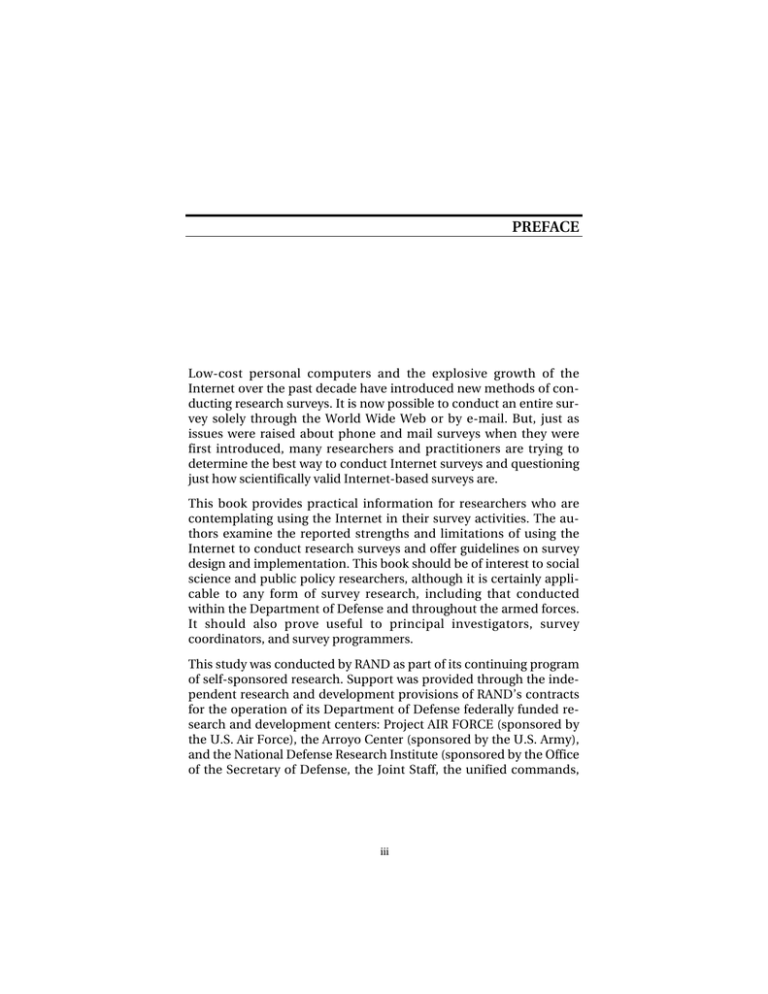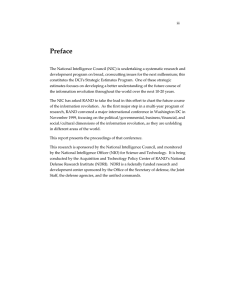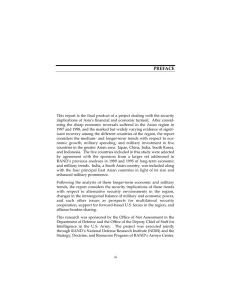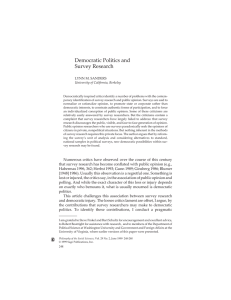PREFACE
advertisement

PREFACE Low-cost personal computers and the explosive growth of the Internet over the past decade have introduced new methods of conducting research surveys. It is now possible to conduct an entire survey solely through the World Wide Web or by e-mail. But, just as issues were raised about phone and mail surveys when they were first introduced, many researchers and practitioners are trying to determine the best way to conduct Internet surveys and questioning just how scientifically valid Internet-based surveys are. This book provides practical information for researchers who are contemplating using the Internet in their survey activities. The authors examine the reported strengths and limitations of using the Internet to conduct research surveys and offer guidelines on survey design and implementation. This book should be of interest to social science and public policy researchers, although it is certainly applicable to any form of survey research, including that conducted within the Department of Defense and throughout the armed forces. It should also prove useful to principal investigators, survey coordinators, and survey programmers. This study was conducted by RAND as part of its continuing program of self-sponsored research. Support was provided through the independent research and development provisions of RAND’s contracts for the operation of its Department of Defense federally funded research and development centers: Project AIR FORCE (sponsored by the U.S. Air Force), the Arroyo Center (sponsored by the U.S. Army), and the National Defense Research Institute (sponsored by the Office of the Secretary of Defense, the Joint Staff, the unified commands, iii iv Conducting Research Surveys via E-Mail and the Web and the defense agencies). The RAND Statistics Group also provided additional funding for this research.



